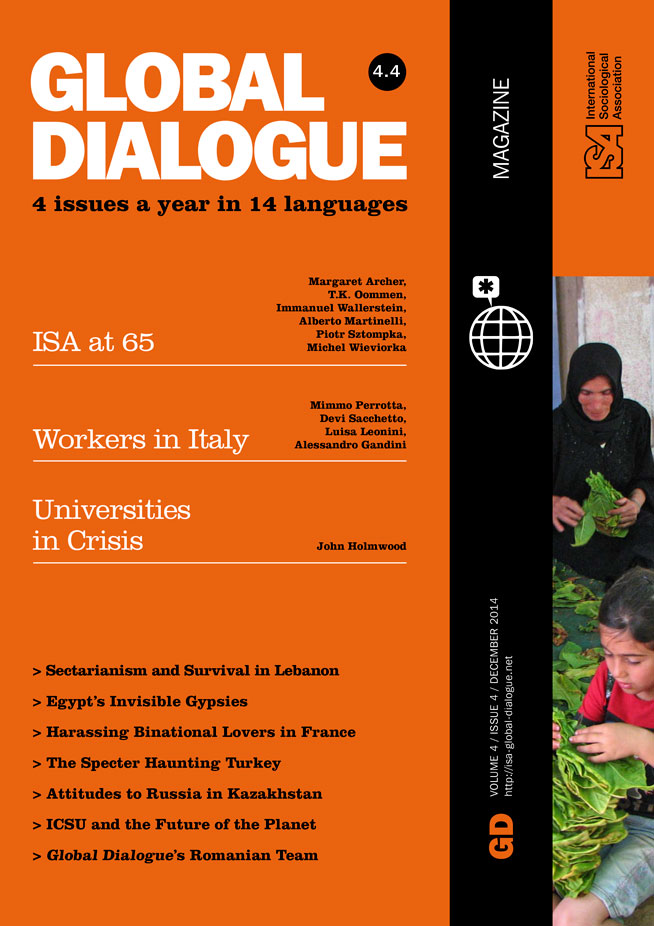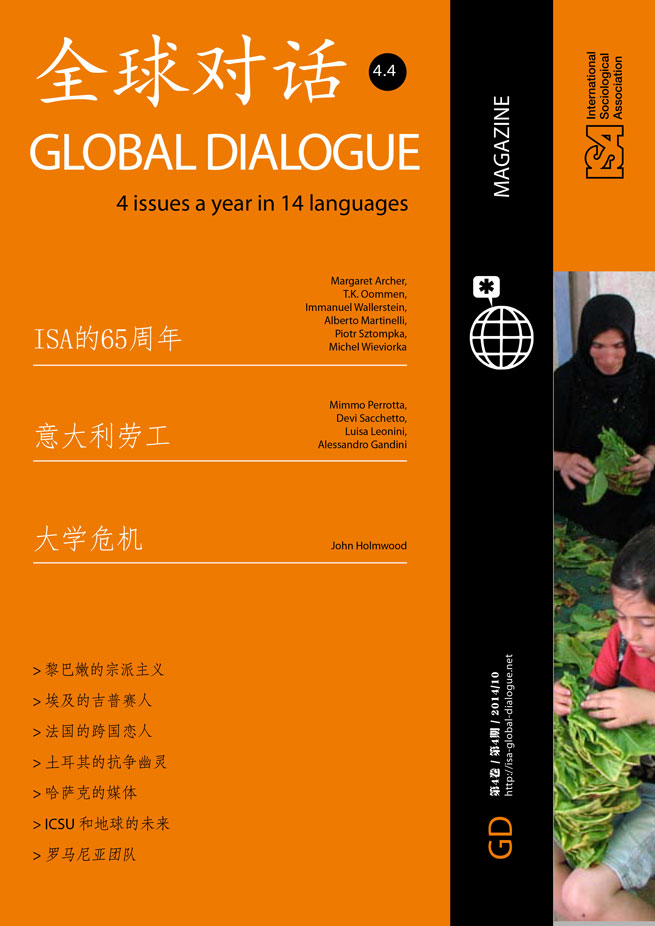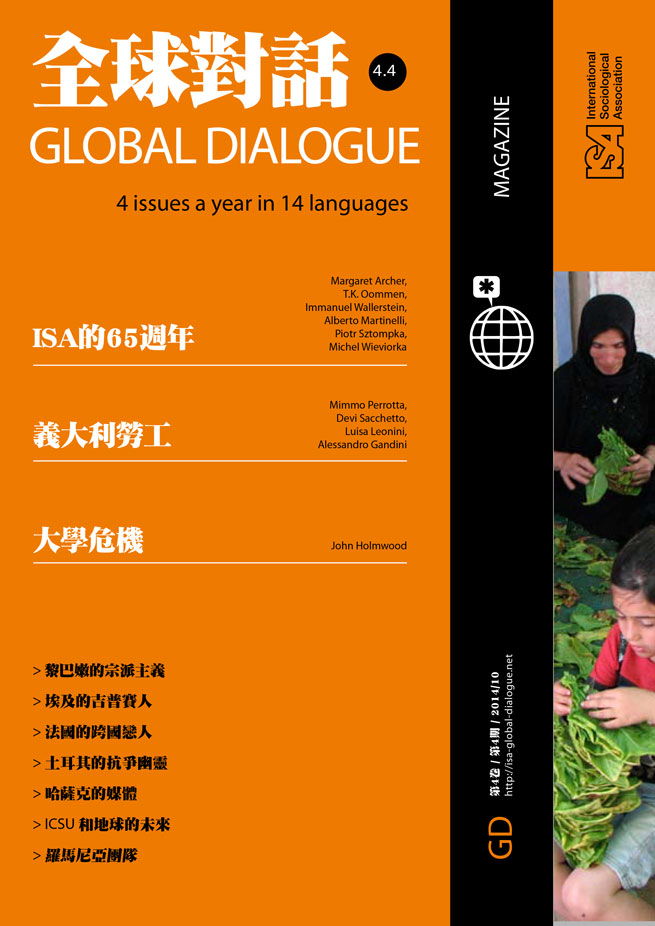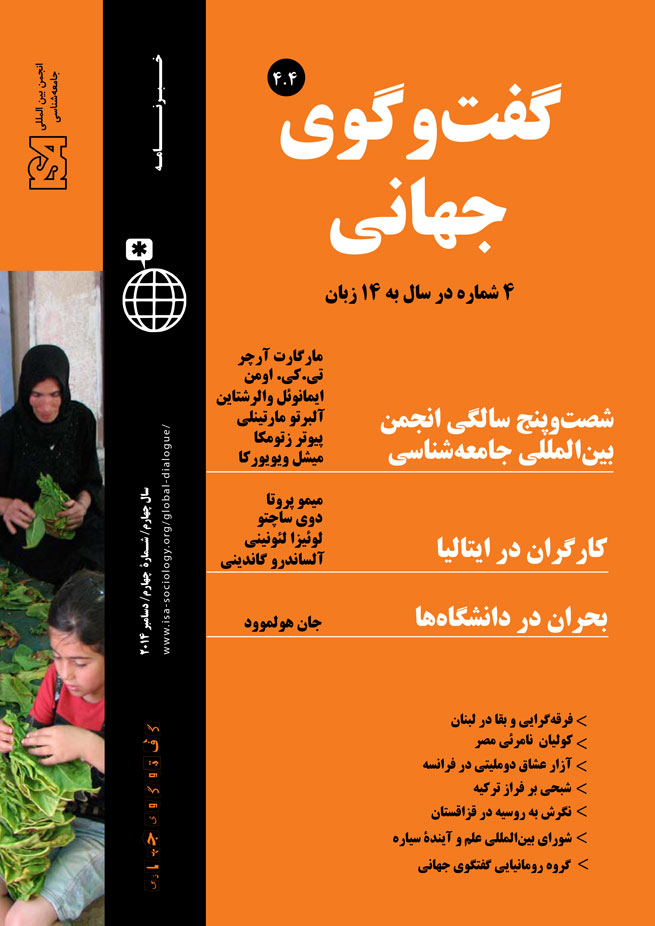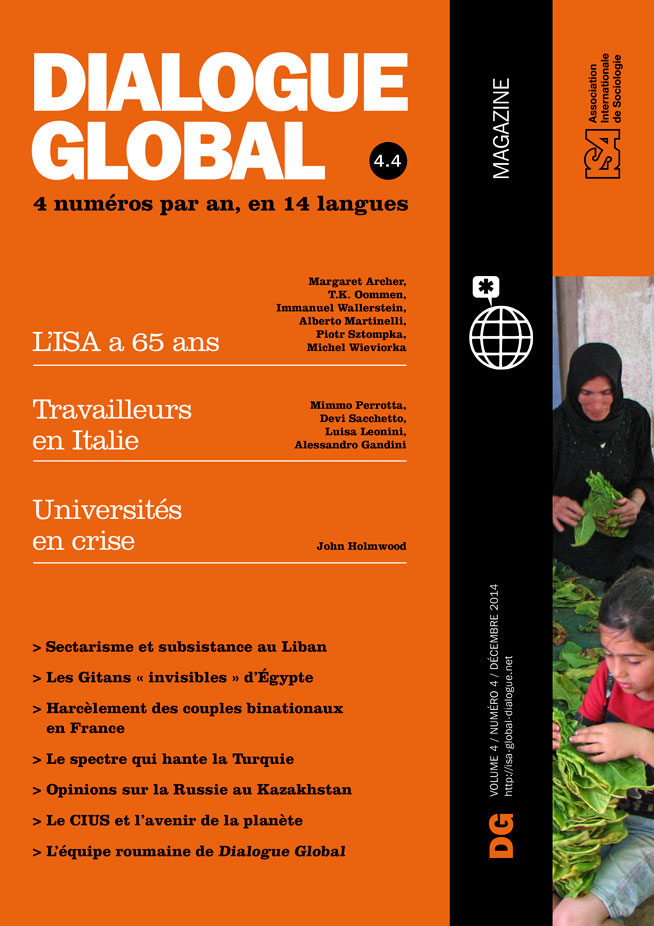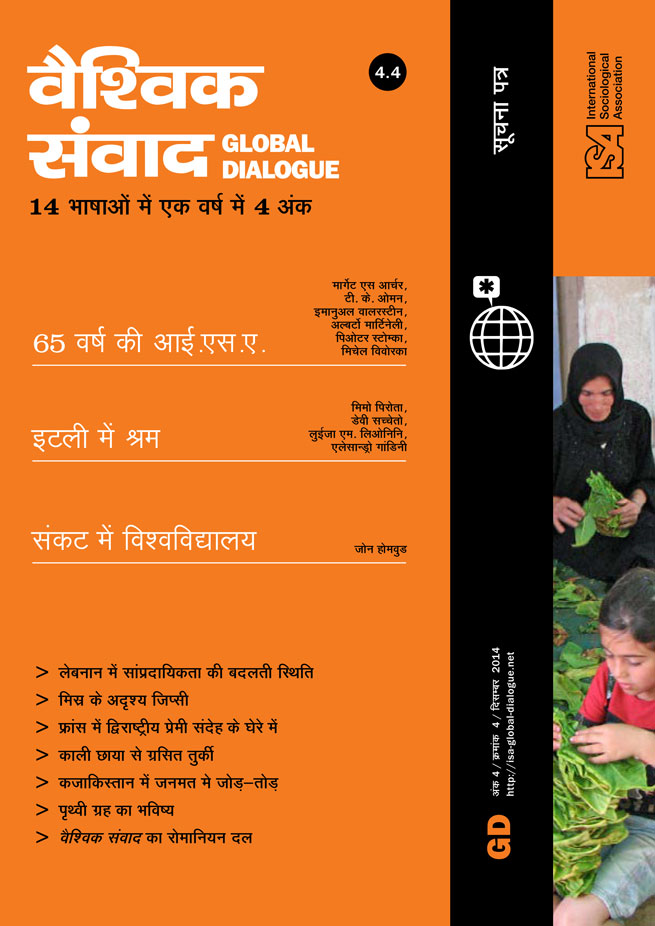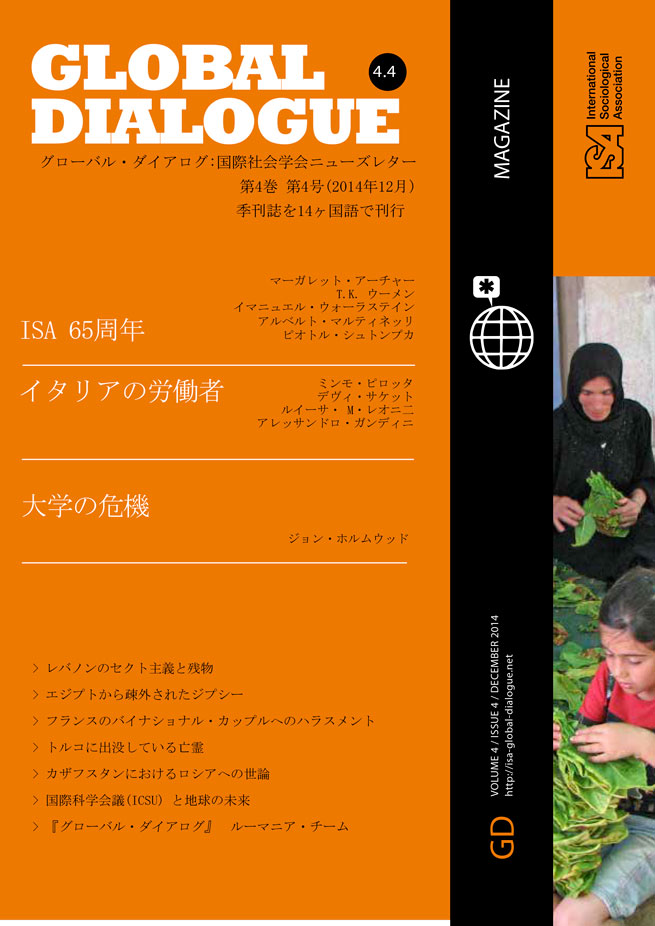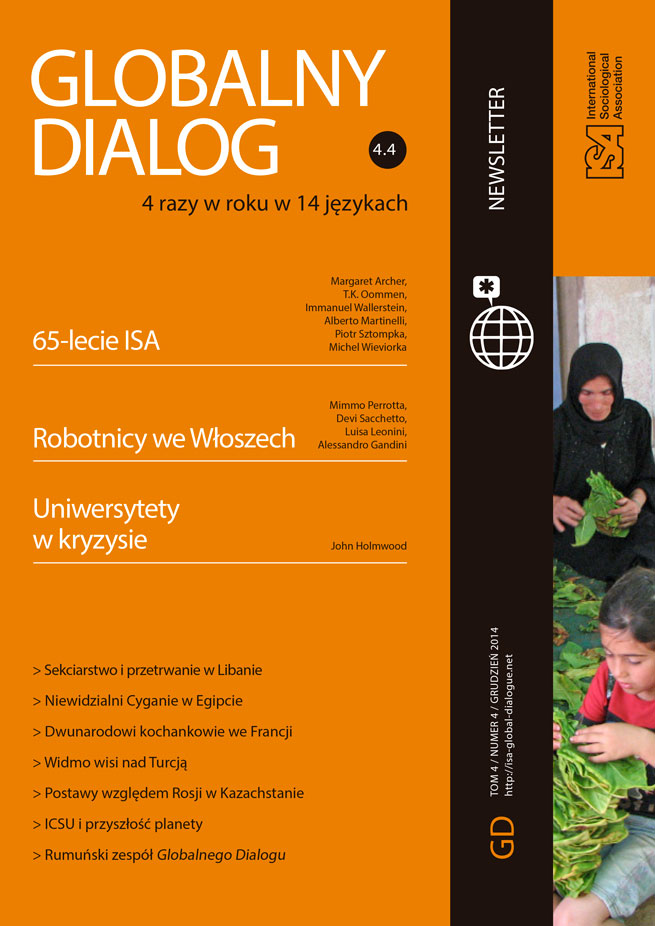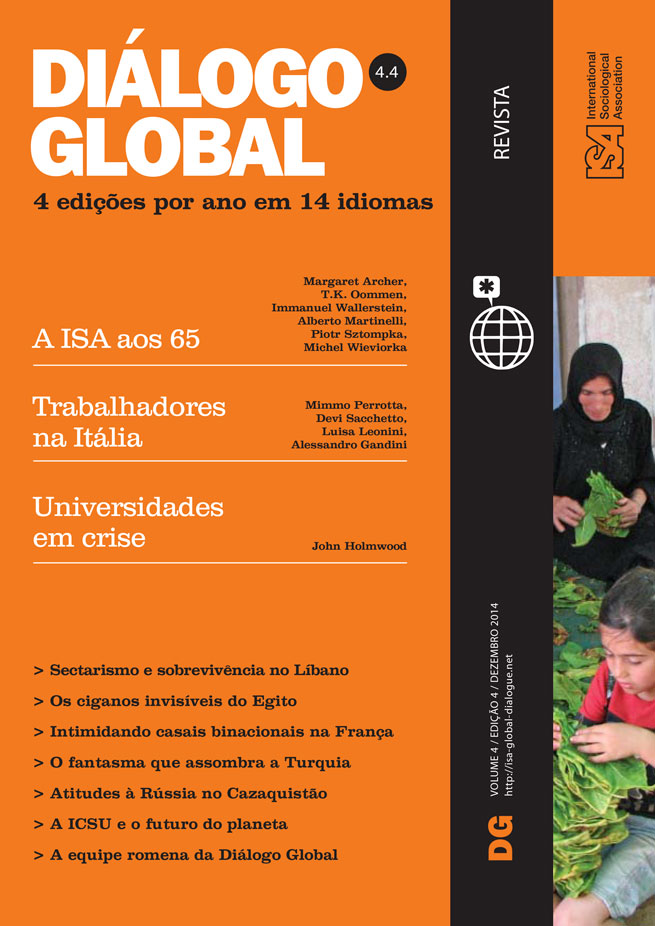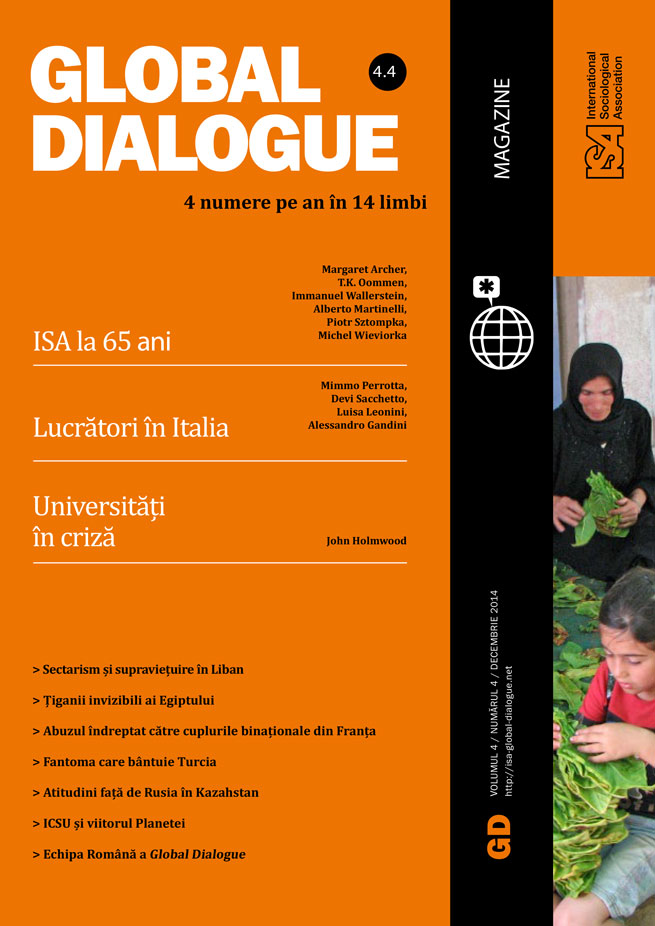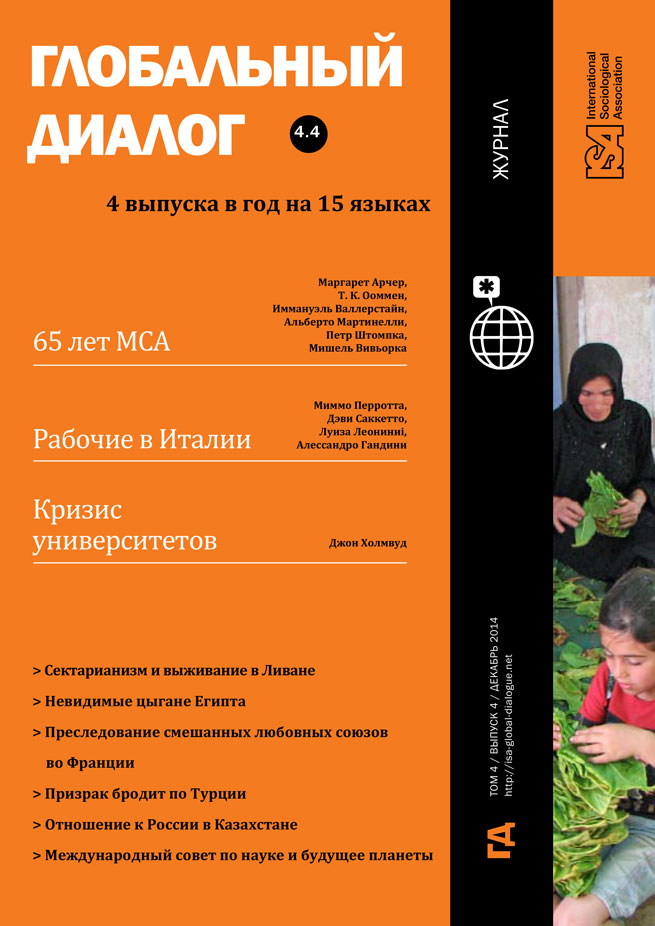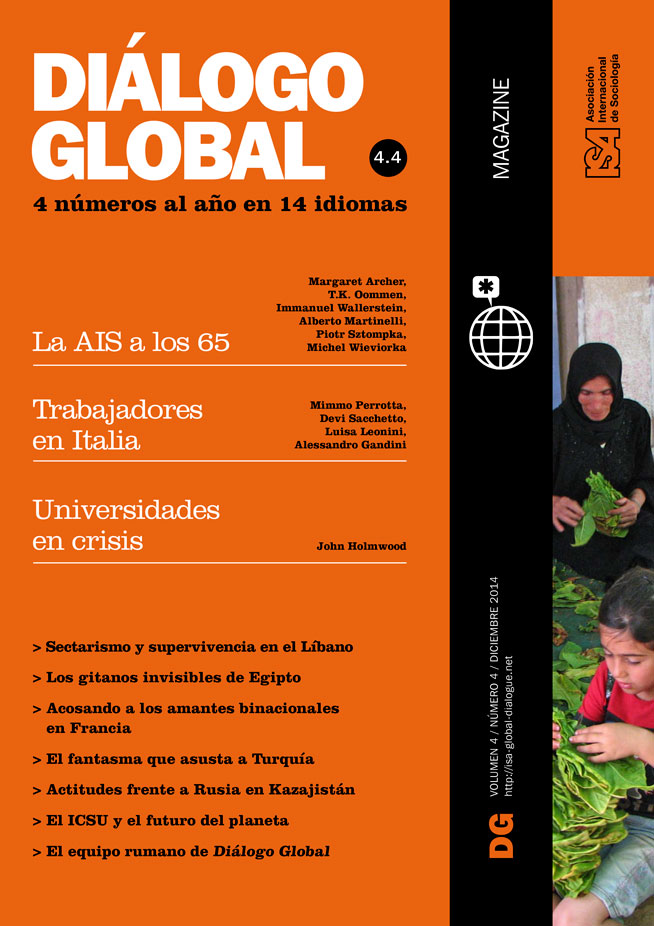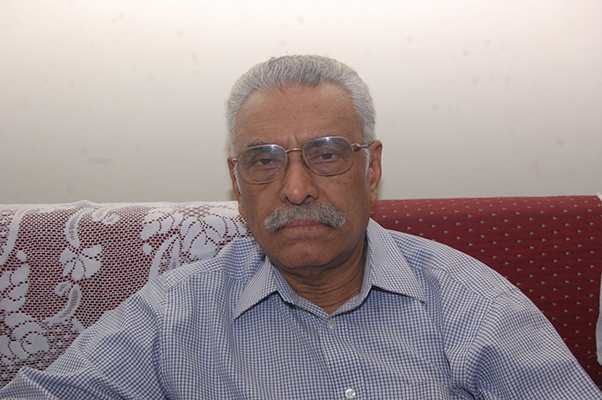The International Sociological Association was formed to foster international sociology, but we have not achieved consensus about the meaning of this elusive concept. Of course, it might be conceived as an aggregation of “national sociologies,” but even in demographic terms, “nations” vary, from those which have over a billion residents (China and India) to countries of five million or less. Moreover, social structures and cultural patterns of “nations” vary enormously: while some nations are multi-national, others are multi-ethnic or multi-tribal; some are nation-states, either in reality or in terms of their aspirations. To treat these disparate units as building blocks for international sociology is a tough proposition. And yet this is precisely what the ISA strives to do.
As Bauman notes, “[With] hardly any exception all the concepts and analytical tools currently employed by social scientists are geared to a view of the human world in which the most voluminous totality is a ‘society,’ a notion equivalent for all practical purposes, to the concept of the ‘nation-state’.” The first prerequisite for internationalization of sociology is to abandon the “nation-state” as a unit of sociological analysis, both to avoid “methodological nationalism” and because the ideal “nation-state” is hardly realized even in its cradle, Western Europe. Yet sociologists cannot substitute “mobility,” “global network,” or “multi-dimensional social spaces” for “society” (the fulcrum of their discipline) as some have advocated, because without societies none of these can be anchored.
A second prerequisite for internationalization of sociology is to overcome the irrational division between sociology and social/cultural anthropology. If anthropology analyzed the inferior Others – Savage, Black and Ethnographic – sociology aimed to study modern, industrial or “programmed” societies. As Fallding rightly claims “[...] cultural and social anthropology comprise neither more nor less than the sociology of simpler peoples.” To insist that sociology is an offspring of modernity subjects non-modern societies to cognitive blackout, and ignores multiple modernities.
Intellectual dichotomies of the colonial period were transformed into a trichotomy during the Cold War era, based on politico-economic factors which had nothing to do with social or cultural structures. The Third World was characterized by underdevelopment, overpopulation and political chaos. The Second World was technologically modern but politically authoritarian, while the First World was modern, technologically efficient, democratic, and economically advanced.
But viewed in terms of social structures and cultural patterns, the Third World consisted of three entirely different entities, emerging from very different colonial experiences. If Africa and South Asia were subject to “retreatist colonialism,” Latin America, which experienced “replicative colonialism,” was constituted by immigrants drawn from a wide variety of ethnic groups. These “ethnic groups” living together in the territory of a state do not make a nation-state in the West European sense. Sociologists’ failure to challenge the Cold War’s three-world schema continues to complicate our understanding of settlement societies – including societies from the First as well as the Third World.
The conflation of state and nation is a common conceptual confusion and a persisting stumbling block to internationalization of sociology. “National traditions” in sociology invariably refer to studies undertaken within state boundaries. Before the Berlin Wall was built, and since its demolition, German sociology had only one national tradition, but for decades, there were two – one for East and another for West Germany. Before the dismantling of the Second World Soviet sociology encapsulated several national sociologies, but with the breakup of Soviet Union several national sociologies came to be recognized.
Linking sociology with the nation-state goes against the very grain of the discipline. Sociology analyzes social structures and cultural patterns in all varieties of societies – modern, pre-modern, simple, complex, agrarian, industrial. If sociology has a disciplinary interest in diversity, the nation-state relentlessly pursues the goal of homogenization. Paradoxically, the souls of sociology and the nation-state pull in opposite directions but they are chained together in one body, that of the body politic – which impedes sociology’s internationalization.
Further, linking sociology with the state is especially problematic for “nations” that have not established their own sovereign states. There is a French sociology but no sociology of Brittany; there is a British sociology but no Welsh one; Spanish sociology but no Catalan one. The Kurdish nation, vivisected across several sovereign states, seems destined to remain without its own sociology. The fate of “national sociologies” seems inextricably intertwined with the political fortunes of nations: “no sovereign state, no sociology.” Can one meaningfully talk about a credible international sociology in such a situation?
Some might argue that we are already witnessing the demise of nation-states. The Second World’s dismantling gave birth to the notion of one world, and its logical corollary, global sociology. But this transformation occurred more in polity and economy, and hardly in society and culture. It was premature to assume that a “single sociology” would emerge. Nevertheless, because one communicative system exists, some have even envisioned a “world society” – a suggestion I see as an unintended slip back into an original sin, namely fashioning sociology after pure sciences. In the course of my Presidential Address to the XIIIth World Congress of Sociology (Bielefeld 1994), two decades ago, I argued that a “World Society discerned in terms of one culture, one civilization, one communication system and the like is not only impossible but not even desirable – pluralization encapsulates the very conception of world society.”
I close with two observations: One, in spite of the transformations in human societies, three dimensions are shared by all: unity (as philosophical realism upholds), multiplicity (as sociological nominalists suggest) and social process (as cultural pluralists hold). These dimensions vary across societies but the basics are there, offering hope for sociology’s internationalization. But instead of focusing on these basics, sociology has lionized economy, polity, technology, media, ecology and the like, relegating social structures and cultural patterns to the status of mere dependent variables.
Second, variation in social complexity stems more from stratification, heterogeneity and hierarchy than from levels of economic development or polity type. Human societies are stratified on the basis of class, gender, age and the like, but as they are also culturally heterogeneous – particularly with regard to religion, language, and race – intersectionality implies increased complexity. In hierarchical societies wherein social values legitimize inequality, complexity increases exponentially. An authentic internationalization of sociology should pursue both commonalities and specificities of societies. International sociology entails neither universalization nor indigenization but contextualization, avoiding both universalism’s hegemonization and indigenization’s parochialization. Indeed comparative sociology is the gateway to the internationalization of sociology.
T. K. Oommen, Jawaharlal Nehru University, New Delhi, India, and former ISA President, 1990-1994 <tkoommen5@gmail.com>







